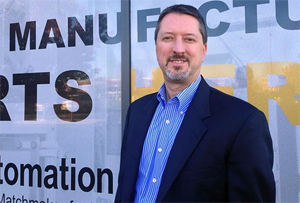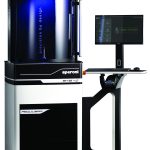In digital manufacturing, the supplier’s real product is intellectual property
In digital manufacturing, the supplier’s real product is intellectual property
In the digitized manufacturing world being born, the product that a job-shop produces is less a piece of engineered metal and more a piece of intellectual property. So said Tom Kelly, the executive director and CEO of Detroit's Automation Alley. That difference brings risks but also unprecedented opportunities for those who are ready.

In the digitized manufacturing world being born, the product that a job-shop produces is less a piece of engineered metal and more a piece of intellectual property. So said Tom Kelly, the executive director and CEO of Detroit's Automation Alley, by phone recently.
The cost of sensors and shop floor connectivity have fallen to the point that even smaller job shops can afford them and get access to data they've never had before, Kelly said: The technology is so inexpensive that shop owners "can practically toss sensors around the plant and machines to start collecting data."
The challenge, however, is in understanding what data is valuable and how to use it to provide a competitive advantage. And in the digital world, that includes understanding how to best leverage your intellectual property.
"What the OEMs really want is to connect the supply chain and have real-time data, not only from their own plants but all the way through the supply chain," Kelly explained. "The productivity potential is enormous—but it also creates a lot of intellectual property issues for the smaller, downstream suppliers that most aren't really thinking about. They need to understand that they're going to be in the business of data and services—and not necessarily only in the business of making physical products or parts."
I've seen this concept dismissed by managers at just the kind of smaller—say, under 100 workers—shops Kelly is talking about. Some tell me that all of that "digital thread" talk may be of interest to those mass-producing cars or building fighter jets, but it seems very far away from the small shop that's doing fine with a few CNC machines. Kelly seemed to be saying that if such a shop digitizes all of its procedures and shares the data up the supply chain, it may be at risk of letting out what ought to be proprietary information. Is he saying it's in danger of inadvertently "giving the store away?"
"That's one way to frame it, but there are two sides," he replied. In that view, the OEMs are a threat—and that is rightly one side of the coin. "But the other side is that this OEM goal is an opportunity for the downstream supplier to make more money and add more value—and become much harder to displace—as he digitizes.
"Both perspectives are true, but if you just look at the situation from a position of fear, you tend to want to say, 'please let this cup pass from me.' And what I'm saying is, for those that understand, this is a land-grab opportunity," he continued. "If a shop can digitize with a tier 1 and onto an OEM, it becomes difficult for that shop to be displaced, and it's actually creating a ton of value. The shop just needs to understand what that value they create actually is. Because it's much more than just the part or product. It's not really tied to the product any more. Its tied to the data."
On the supplier plant floor level, "the opportunities are enormous for the early movers," he said.
More from Tom Kelly in my January feature on shop floor connectivity.





